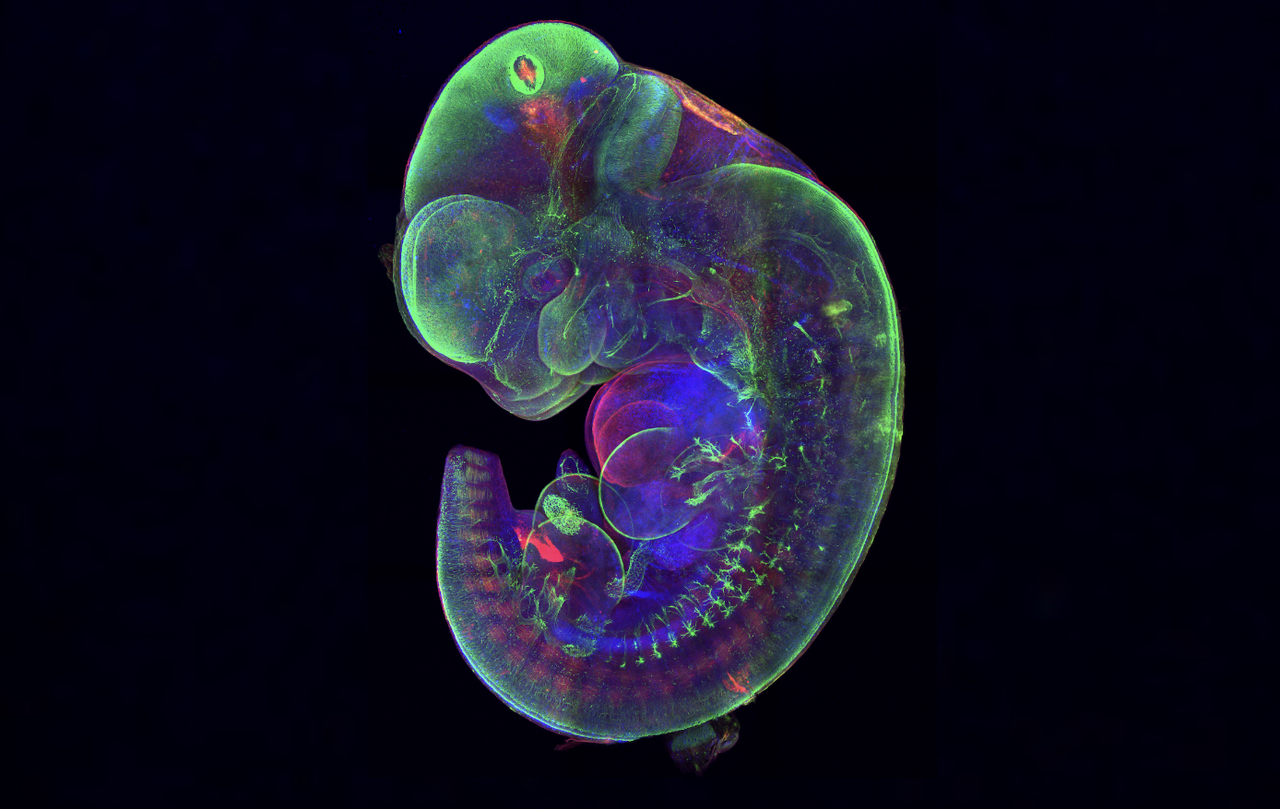News

11 September 2024
Confronting congenital conditions for hope
The importance of foundational research for understanding and potentially addressing congenital conditions
Read Article
B.S., Physics, University of Sarajevo
Ph.D., Physics, University of Paris
Ph.D., Biology, University of Paris

My background in physics has allowed me to ask biological questions from a different perspective. Gene regulatory networks are similar to electronic circuits and the number of variables controlling them is finite. That means it’s a solvable problem.
Research Areas
Development and Regeneration, Genetics and Genomics, Evolutionary Biology, Molecular and Cell Biology, Systems Biology
Courses Taught
Laboratory Rotation; Thesis Laboratory
Honors
2020
Cheryll Tickle Medal, British Society of Developmental Biology
2019
Wellcome Trust Senior Research Fellowship in Biomedical Science
2018
Radcliffe Department of Medicine Award for Excellent Supervision
2017
Honorary Nancy S. Rafferty Lectureship in Embryology, Woods Hole, USA
2013
Lister Institute Research Prize
2013
March of Dimes Basil O’Connor Research Award
2011
MRC WIMM Fellowship
Tatjana Sauka-Spengler, Ph.D., a physicist and developmental geneticist, joined the Stowers Institute in 2022 as an investigator.
Growing up in Bosnia and Herzegovina, Sauka-Spengler completed a B.S. in physics at the University of Sarajevo when the Bosnian war began. She sought asylum in the Czech Republic and was forced to put her studies on hold for several years. After completing a Ph.D. in physics at the University of Paris, her favorite professor convinced her to pursue a second Ph.D. in biology from the University of Paris under Sylvie Mazan, Ph.D., where she focused on developmental and evolutionary biology. Sauka-Spengler then completed a postdoctoral fellow in the lab of Marianne Bronner, PhD, at the California Institute of Technology (CalTech), where she pioneered key methodologies to study gene regulation in chick embryos and developed novel techniques for elucidating lamprey and zebrafish genomics. Following completion of her postdoctoral work, Sauka-Spengler worked as a senior research fellow and as a professor at CalTech.
In 2011, Sauka-Spengler joined the Weatherall Institute of Molecular Medicine at the University of Oxford as a group leader and research fellow before being promoted to associate professor in genome biology in 2014 and professor of developmental genomics and gene regulation in 2020.
The Sauka-Spengler Lab investigates genetics, gene regulation, and regulatory networks underlying development and regeneration in a variety of research organisms. Her lab is considered multi-disciplinary and collaborative; she encourages and champions her graduate and postdoctoral students to pursue and achieve their own research ideas and goals.
News

11 September 2024
The importance of foundational research for understanding and potentially addressing congenital conditions
Read Article
News
24 January 2024
The sea lamprey is a valuable research organism for exploring evolution
Read Article
News

22 September 2023
Five postdoctoral researchers from four labs received prestigious awards to enhance their research and training.
Read Article
Ancient evolutionary origin of the neural crest gene regulatory network.
Sauka-Spengler, T., Meulemans, D., Jones, M., & Bronner-Fraser, M. (2007). Developmental cell, 13(3), 405-420.
A gene regulatory network orchestrates neural crest formation.
Sauka-Spengler, Tatjana, and Marianne Bronner-Fraser. Nature reviews Molecular cell biology 9.7 (2008): 557-568.
Assembling neural crest regulatory circuits into a gene regulatory network.
Betancur, Paola, Marianne Bronner-Fraser, and Tatjana Sauka-Spengler. Annual review of cell and developmental biology 26 (2010): 581.
The amphioxus genome and the evolution of the chordate karyotype.
Putnam, Nicholas H., et al. Nature 453.7198 (2008): 1064-1071.
Smith, Jeramiah J., Shigehiro Kuraku, Carson Holt, Tatjana Sauka-Spengler, Ning Jiang, Michael S. Campbell, Mark D. Yandell et al. Nature genetics 45, no. 4 (2013): 415-421.
Simões, Filipa C., Thomas J. Cahill, Amy Kenyon, Daria Gavriouchkina, Joaquim M. Vieira, Xin Sun, Daniela Pezzolla et al. Nature communications 11, no. 1 (2020): 1-17.
